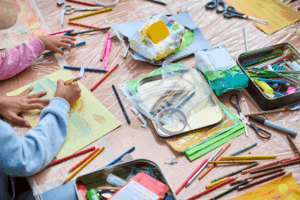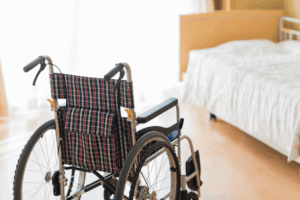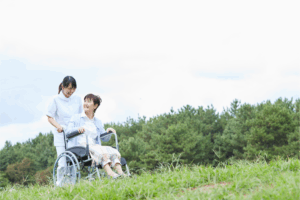"My child is a little hard to raise...?"
'I feel like there's something different about you compared to the other kids, is it my imagination?'
Do you have such anxiety and confusion?
Developmental disabilities are,Difficult to see visually and easily overlap with individual differences in growthTherefore, it is often difficult to notice.
However,Support begins when you feel "maybe...It is.
In this guide, we will introduce the signs of development seen at different ages, where to consult, and the process to diagnosis in an easy-to-understand manner. We hope that this guide will help you take the first step, rather than keeping it to yourself and your family.
What is developmental disability?
Developmental disabilities are due to differences in the way the brain works from birth,A condition in which characteristics appear in communication, behavior, attention, and sensory coordination.It is.
The main types are as follows
- Autism Spectrum Disorder (ASD): interpersonal relationships, obsessiveness, etc.
- Attention Deficit/Hyperactivity Disorder (ADHD): difficulty in concentrating, restlessness
- Learning Disabilities (LD): Difficulties with some aspects of learning, such as reading, writing, and calculation.
Signs of Awareness" easily seen by age group
Signs of developmental disabilities tend to vary with age and environment.
Here are a few points that "might look like this..."
Around 1 to 3 years old (infancy)
- No response when I call his name.
- Pointing and words are hard to come by.
- Does not make eye contact, does not want to be held
- Repeat one game endlessly
Around 3-6 years old (pre-school)
- Difficulty in group activities and keeping in line
- Lots of trouble with your friends.
- Obsessive and unable to switch
- Strongly dislikes loud noises, smells, and textures
From elementary school onwards
- Standing and walking in class or having difficulty concentrating
- Extremely poor in only part of reading, writing, and calculating
- Unique phrasing that makes it difficult to understand the context of the conversation
- They say, "I can't read the air."
Steps from Consultation to Diagnosis
(1) First, consult with a familiar face.
- Local childcare support centers and public health centers
- Disability Welfare Division and Child Development Support Desk of municipalities
- Consult with preschool, kindergarten, and school teachers
In the office for parenting and developmental counseling,Assessment of developmental status by professionals (psychologists, public health nurses, etc.)and connect them to medical referrals as needed.
(2) Diagnosis at medical institution
- Visits to pediatrics, child psychiatry, developmental outpatient clinic, etc.
- Interviews and psychological testing (WISC, etc.) by specialists
- A medical certificate or opinion letter is issued.
Support system available after diagnosis
A diagnosis does not "immediately change anything".
HoweverEasier access to support systemsis a great advantage.
- Obtaining a Rehabilitation Certificate (if mentally retarded)
- Child development support and after-school day care services
- Special needs schools and classrooms
- Welfare services for persons with disabilities (including future employment support)
Also, to provide more support to families and more opportunities for consultation with professional staff,It's a relief to be connected with someone who understands."will also be born.
◆ Attending to the Feelings of Parents
It is natural to feel anxious and inclined to deny it when you hear the term "developmental disability."
But by connecting with support early, you can help your childExpanded opportunities to grow up "as you areIt is also true that
Recently, support, school selection, and even work styles that match developmental characteristics,A support system has been put in place to support the strengths of the individual.
Please take advantage of the support of the Kuninkai.
Providing disability welfare services mainly in Numata City, Gunma Prefecture.Social Welfare Corporation KuninkaiThen,
- Consultation for children with developmental concerns and their families
- Rehabilitative support (daily life support, group activities, light work)
- Support for steps toward employment (e.g., Type B offices)
Such as,We provide age- and condition-appropriate support one step at a time.
▶ For more information, click here:https://kyujinkai.com/shougai/
Please feel free to contact us even at the stage of "I don't need to use it right now..." or "I don't know what to discuss with you.
Support begins when you realize it.
A parent's intuition that "this child is a little curious" is very important in raising a child.
May you and your child move forward at your own pace and without difficulty.
We would be happy if we could help with that.
Please feel free to contact us.
Disability Support Center for Everyone (Numata City, Gunma Prefecture)
Specialists provide free consultation and service utilization planning regarding welfare of persons with disabilities.
TEL:0278-25-8311
Mail:minnanotameno@kyujinkai.com
*This article is based on information as of June 2025. Please check with your local government office for the latest support system and consultation.









